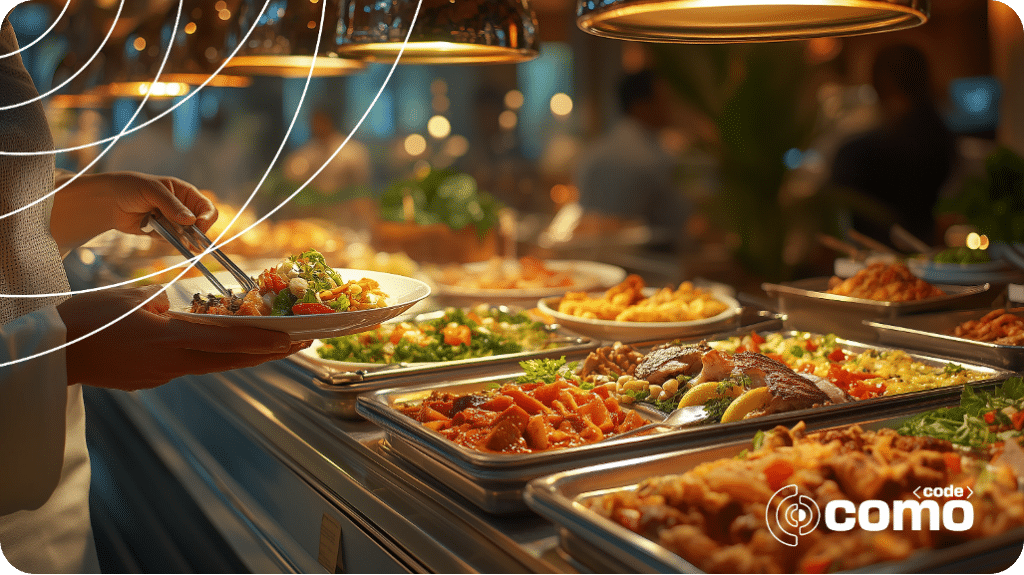Automation in hospitality is transforming operations by optimizing processes, cutting costs, and improving customer satisfaction. Tools like CRM and POS systems enhance efficiency, build loyalty, and elevate brand reputation, ensuring success in a competitive market.
Achieving success in the hospitality and tourism sector is not only about providing high-quality services. Today, customer expectations have reached a new level, and businesses must adapt by utilizing modern tools that optimize processes and provide top-notch experiences.
In the era of modern technology, automation is the driving force that transforms various sectors, from production to service industries. Tourism, hospitality, and the restaurant business are among the greatest beneficiaries of these innovative solutions. Automated systems not only simplify business processes, reduce operational costs and waste, but also enhance customer satisfaction, which in turn increases revenues and ensures long-term success.
Here’s how modern technologies are changing these sectors and why automation is no longer a luxury but a necessity for today’s businesses.
The Importance of Hotel Management Automation
The hospitality industry, being customer-centric, demands high-quality service and efficient management. Every detail, from bookings to implementing customer preferences, impacts the success of the business. This is where automated systems become game-changing tools.
When guests want to book a room, speed and convenience become key factors. Traditional methods, where customers had to call the hotel or contact intermediaries, are gradually being replaced. Online automated systems allow guests to find their desired room, check prices, and make payments within seconds.
The hotel and restaurant management solutions by Como Code ensure that this process is not only convenient but also integrated, including payment systems that simplify transactions. For instance, a customer can select a room, view its description, check availability, and make a payment without staff intervention.

Centralized Management of Customer Data
Hotels often face numerous challenges, from the complexity of room bookings to managing customer complaints. Currently, CRM systems provide solutions to these challenges, transforming hotel operations.
CRM systems enable the collection, analysis, and integration of all customer-related data. This includes booking history, preferences, special requests, and even past complaints. For example, if a guest previously complained about the cleanliness of their room, the system can monitor the resolution and ensure that issue is addressed during their next visit.
Personalization and Complaint Management
Hotels frequently encounter complaints that can negatively impact the brand’s reputation. CRM systems not only record complaints but also track their status, ensuring that every issue is resolved promptly. This tool allows businesses to address even the smallest details, thereby improving customer satisfaction.
With CRM, hotels can not only record customer preferences but also create personalized offers. For example, if a guest prefers a room with a lake view, the system can offer special packages for that room. Such an approach not only enhances guest satisfaction but also promotes repeat bookings.
Automating Loyalty Enhancement
Establishing strong relationships with customers in the hotel business goes beyond providing quality services. Creating loyal customers and continuously engaging them requires special approaches, among which the most effective are promotions and personalized offers. Hotels can regularly organize “low-cost” offers, including discounts or special packages for weekends, holidays, or off-peak seasons. For instance, discounts offered on less busy days of the week or room packages attract new customers and fill empty rooms. This functionality is automated through business process diagrams, where specific actions are triggered under certain conditions, and CRM systems automatically send offers.
Congratulating customers on their special days, such as birthdays or anniversaries, creates a unique experience. CRM systems can collect such data about customers and use it for personalized messaging.
For example, the CRM can automatically notify the team of a customer’s birthday and offer a discount or special gift. A simple congratulatory email or personalized offer can create positive emotions that encourage the customer to return.
Loyal customers often become the best marketing tools. When a hotel guest feels cared for, they are more likely to recommend the brand to their network. This so-called “word-of-mouth marketing” becomes a free and highly effective way to boost brand awareness.
Moreover, when a hotel offers promotions and personalized greetings to customers, it creates a strong bond, turning regular visitors into the brand’s long-term advocates. Such an approach not only increases repeat visits but also helps the hotel stand out in the market.
Restaurant Automation
The hotel business is closely tied to the restaurant industry, offering guests breakfast, lunch, and dinner. Efficient management of hotel restaurant processes is critical for overall customer satisfaction and the business’s success. Automated solutions, including the integration of POS systems with CRM solutions, as well as tools for menu and supply management, become the key to the efficiency of these processes.
Integration of POS Systems with CRM Solutions
POS (Point of Sale) systems provide centralized management of sales processes, while CRM (Customer Relationship Management) solutions manage customer relationships. Integrating these two systems allows restaurants to collect, analyze, and efficiently utilize customer behavior data.
Analysis of Customer Preferences
The POS system records customer purchase histories, and the CRM consolidates this data to analyze customer preferences. For instance, if a customer consistently orders a specific dish, the system can offer them a special discount or promotion.
Demand Forecasting
The integration of POS and CRM systems enables management to track customer demands and predict which dishes are most popular. This helps the restaurant optimize its menu and reduce waste.
Streamlining Supply Management
The systems provide comprehensive statistics that help accurately plan ingredient supplies. For example, if there is high demand for a specific dish during a given period, the system can help forecast the necessary quantity of ingredients.
Menu Management
Automated systems allow managing and optimizing menus based on customer demands and sales data.
POS systems enable management to quickly modify or update menus, adding seasonal or special offers. For instance, if an ingredient is temporarily unavailable, the system can automatically remove the dish from the menu to avoid customer dissatisfaction.
Menu Optimization Based on Sales Data
The systems provide accurate data on which dishes are most frequently ordered by customers. This allows the focus to be placed on the most profitable offerings while removing low-demand dishes.
Conclusion
Automated solutions in the restaurant and hospitality sectors are becoming key tools for ensuring business efficiency and customer satisfaction. The integration of POS and CRM systems, as well as tools for managing menus, raw materials, and semi-finished products, allows businesses to:
• Better understand customer needs.
• Predict supply requirements.
• Reduce waste and avoid unnecessary expenses.
These innovations not only contribute to increased profitability but also strengthen brand awareness and customer loyalty.

